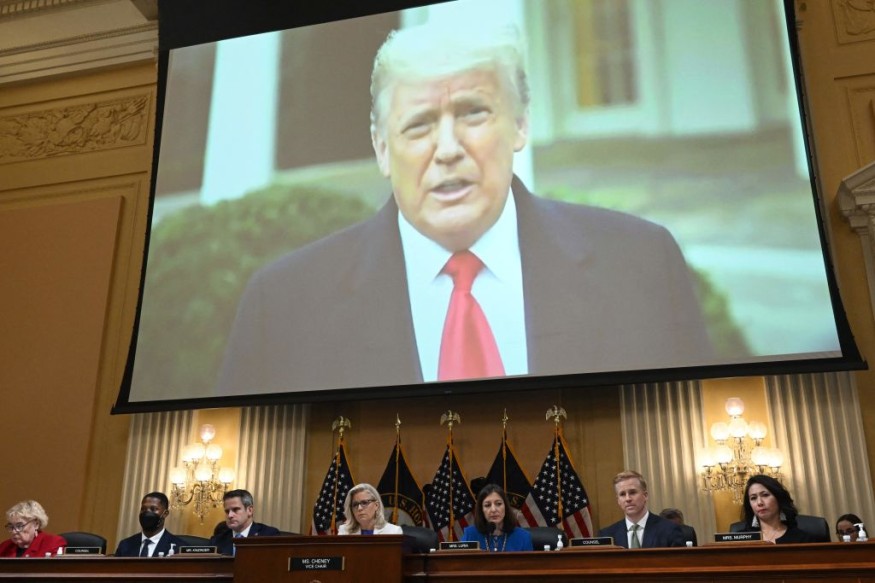January 6 Committee Recommends Bringing Criminal Charges vs. Donald Trump; Former President Involved in Multi-Part Conspiracy

After over a year of investigations into the actions of former President Donald Trump during the January 6 Capitol Insurrection, the House Committee on January 6 recommended that the Department of Justice bring criminal charges against Donald Trump.
The 9-member panel, which consisted of seven House Democrats and two House Republicans, all agreed to recommend criminal charges against the former president and his associates who helped him in his efforts to overturn the results of the 2020 presidential elections, leading to Trump inciting a violent mob to storm the Capitol.
According to the Associated Press, the January 6 Committee then called for accountability for former President Trump and stated that it was "a time of reflection and reckoning."
January 6 Committee Found That Trump Aided an Insurrection
The January 6 Committee released a summary of their report online for all to see. It revealed that the congressmen investigating the January 6 Capitol Insurrection found that Trump violated four criminal statuses in both the lead-up to the Capitol Insurrection, as well as during the incident itself.
Among these charges, the panel recommended that the DOJ prosecute the former president for aiding an insurrection. The panel found him directly responsible for the actions that his supporters did when they stormed the Capitol building. They also found that Trump was part of a "multi-part conspiracy" to thwart the will of voters.
The panel also recommended that Trump lawyer John Eastman to be prosecuted by the DOJ, as he was the one who devised Trump's dubious legal maneuvers that led to an insurrection. He was recommended to have broken two legal statuses as Trump, conspiracy to defraud the United States and obstructing an official proceeding.
In a statement, January 6 Committee Chairman Bennie Thompson stated that the former president "broke the faith" that people had in elections and that the criminal referrals against him could provide a "roadmap to justice."
The first charge against Trump is aiding an insurrection, and the committee found that Trump "was directly responsible for summoning what became a violent mob." He also refused requests from aides to condemn the insurrectionists repeatedly.
As for his obstructing an official proceeding charge, the committee found that Trump's pressure campaign on then-Vice President Mike Pence to overturn the election results was enough to warrant that charge.
Meanwhile, his repeated lies about the elections have warranted the charge of conspiracy to defraud the United States.
His final charge, conspiracy to make false statements, involves his schemes to set up fake electors in battleground states to vote for him.
January 6 Committee Cannot Indict Donald Trump, But They Can Recommend the Justice Department to Prosecute
While the charges are serious, the BBC pointed out that the House panel's recommendations are largely symbolic. It does not have the power to indict the former president. It does, however, put more pressure on the DOJ's Merrick Garland and special counsel Jack Smith to act.
While it has no legal standing, it is still a very forceful statement, and their findings can be used as evidence in the investigations by Smith and the DOJ.
With this, they have already laid out a case against Trump and his allies, including a motive and the opportunity, as well as "supporting evidence gathered over nearly two years of interviews, subpoenas, document reviews, and legal battles."
This article is owned by Latin Post.
Written by: Rick Martin
WATCH: Jan. 6 Committee Unveils Four Criminal Referrals For Trump - MSNBC
Subscribe to Latin Post!
Sign up for our free newsletter for the Latest coverage!
© 2025 Latin Post. All rights reserved. Do not reproduce without permission.

















